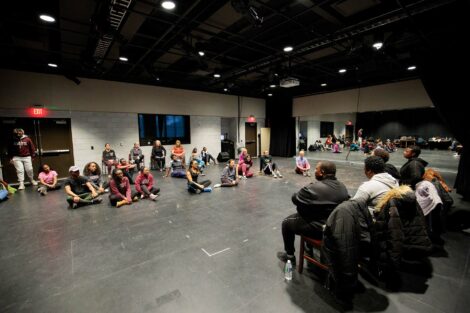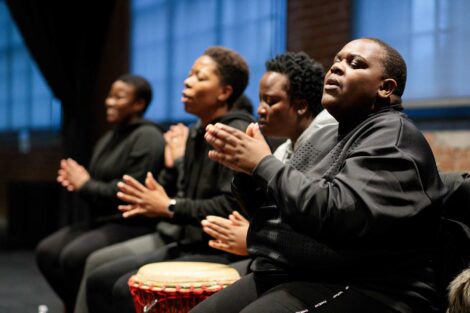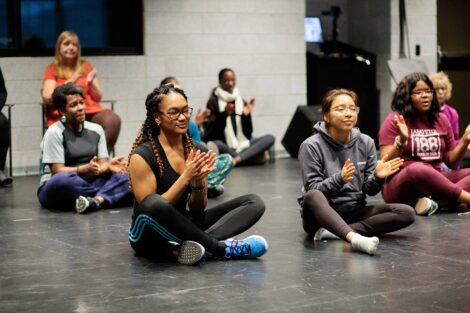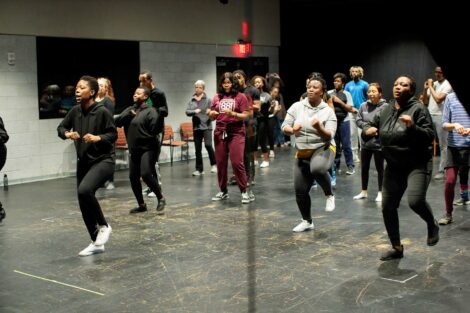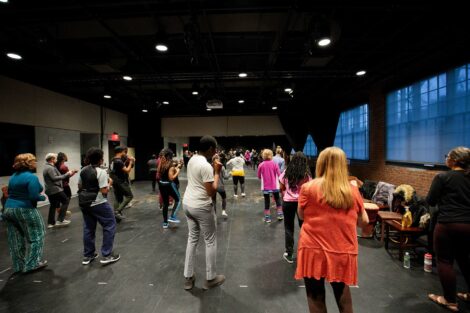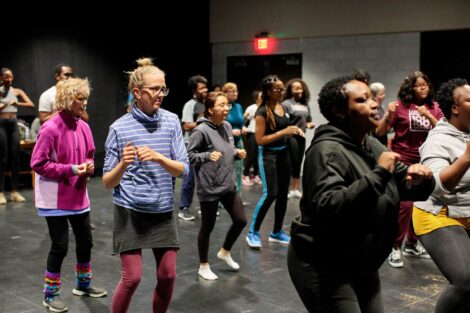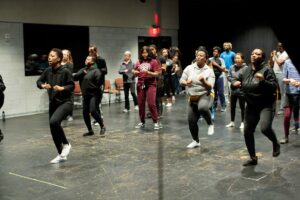By Stephen Wilson
Their fans call them the Obabes BeMbube—the babes of Mbube, a style of South African vocal music made famous by Solomon Linda in 1939 in what later became the hit song “The Lion Sleeps Tonight.” Groups like Ladysmith Black Mambazo have further popularized the style. As the first female Mbube group, Nobuntu has joined a male-dominanted scene and infused the style with a woman’s perspective.
The word Nobuntu is an African concept that values humbleness, love, purpose, unity, and family. The performers’ voices, dance, instrumentation, attire, and moxie have made them self-processed “babes.”
The world has recognized that moniker and talent, naming the group Best Musician of the Year at the Zimbabwe International Women Awards and Best Imbube Group in 2017 and 2019.
The group shared the spirit on stage and in a workshop on campus.
On stage in clothes representing five of the many tribes in Zimbabwe, the women sang traditional Zimbabwean songs, gospel, and soul. One powerful ballad, “Moya Moya,” spoke of the tremendous cultural pressure put on women at a young age to marry and bear children. While the women sang, one member prostrated herself and released a guttural lament.
The group offered songs of power, praise, and redemption, selecting “Amazing Grace” as a means to connect with all audiences. The performers even had fun trying to teach those in attendance to click, the language of Ndebele.
In the workshop, Lafayette students, staff, and community members filled the Studio Theater at Williams Arts Campus to learn a few South African dances. While the dances were deceptively complex, the group participated with enthusiasm. Never content to simply share its moves, Nobuntu enjoined participants to learn the songs and percussion that accompany the dances as well.
